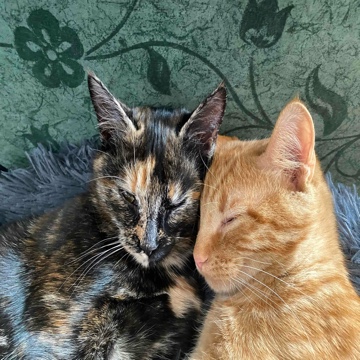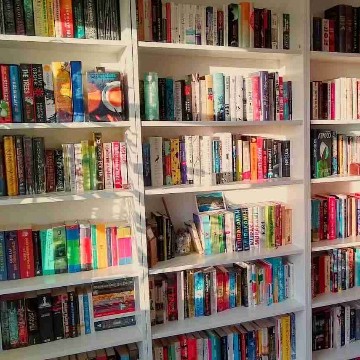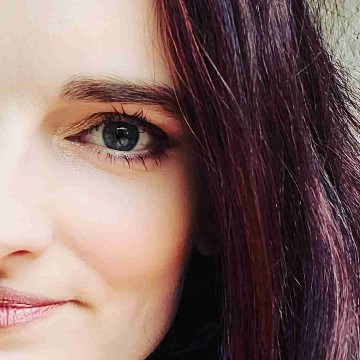The Returned
Jetzt kaufen
Durch das Verwenden dieser Links unterstützt du READO. Wir erhalten eine Vermittlungsprovision, ohne dass dir zusätzliche Kosten entstehen.
Beschreibung
Beiträge
Ganz nett, aber es blieb alles in allem hinter meinen Erwartungen zurück.
What happens if everyone who ever died returns? How does humanity react? Who or what are these Returned? Are they the same people they were before they died? Are they people? These are interesting questions that are addressed in this novel. Its premise sounded to me like the perfect set up to meditate on death and what happens afterwards. But also to show various reactions to something some might call a miracle and others the end of days and again others might call a scientific oportunity. It enables a discussion about the role and value of religion, science, and government in today's society. And gives an excellent example of the way we - humans, that is - want our problems to be solved by some higher power; be it God or Government. Sadly all the question-raising and thought-provoking happens in the background of this novel, off-stage, so to speak. The plot advances so slowly and the characters remain fairly flat, it just could not keep my attention. I started skimming and did never get that nagging feeling of having to pick up the book every free minute. I did not even finish it. I might skip ahead and have a look at the ending. I also might just forget about it though. The problem is not that I need my stories to be action-packed and fast. BUT: if a topic lends itself to spiritual and philosophical questions I also expect a writing style that is able to convey the poetry of things (unless I am reading non-ficiton). This is especially the case in a debut novel by a poet. I had high hopes for The Returned, maybe they were too high to be met. Still, I want to end this review on a good note. The main plot line of the son who returns fifty years after his death is interspersed with short snippets of the other Returned. These glimpses at what is actually happening and how the whole situation affects individuals and is dealt with by the so-called Bureau were the interesting part. They are beautiful and touching and sad. They are a hundred times better than the main plot. Maybe Mott should stick with short stories, he seems to be brilliant at them.
Let me start by saying that this isn't the type of book I typically read. Usually, there's a main character and within the first chapter or two it becomes clear what the storyline roughly looks like, who the hero and the anti-hero are and what needs to happen to get to an happy end. The Returned is different. Although it does tell the story of a family and how they deal with being confronted with their returned son, it doesn't focus too much on their singular fate. In a story about formerly dead people reappearing, the Hargraves are part of a much, much bigger picture of something no one could possibly fully understand. The unthinkable happened and easily disturbed everything anyone ever knew to be true, and as chaos breaks lose opposing organisations form. The question is: which side to you pick? What if they're both wrong? What do you believe in anymore?
Beschreibung
Beiträge
Ganz nett, aber es blieb alles in allem hinter meinen Erwartungen zurück.
What happens if everyone who ever died returns? How does humanity react? Who or what are these Returned? Are they the same people they were before they died? Are they people? These are interesting questions that are addressed in this novel. Its premise sounded to me like the perfect set up to meditate on death and what happens afterwards. But also to show various reactions to something some might call a miracle and others the end of days and again others might call a scientific oportunity. It enables a discussion about the role and value of religion, science, and government in today's society. And gives an excellent example of the way we - humans, that is - want our problems to be solved by some higher power; be it God or Government. Sadly all the question-raising and thought-provoking happens in the background of this novel, off-stage, so to speak. The plot advances so slowly and the characters remain fairly flat, it just could not keep my attention. I started skimming and did never get that nagging feeling of having to pick up the book every free minute. I did not even finish it. I might skip ahead and have a look at the ending. I also might just forget about it though. The problem is not that I need my stories to be action-packed and fast. BUT: if a topic lends itself to spiritual and philosophical questions I also expect a writing style that is able to convey the poetry of things (unless I am reading non-ficiton). This is especially the case in a debut novel by a poet. I had high hopes for The Returned, maybe they were too high to be met. Still, I want to end this review on a good note. The main plot line of the son who returns fifty years after his death is interspersed with short snippets of the other Returned. These glimpses at what is actually happening and how the whole situation affects individuals and is dealt with by the so-called Bureau were the interesting part. They are beautiful and touching and sad. They are a hundred times better than the main plot. Maybe Mott should stick with short stories, he seems to be brilliant at them.
Let me start by saying that this isn't the type of book I typically read. Usually, there's a main character and within the first chapter or two it becomes clear what the storyline roughly looks like, who the hero and the anti-hero are and what needs to happen to get to an happy end. The Returned is different. Although it does tell the story of a family and how they deal with being confronted with their returned son, it doesn't focus too much on their singular fate. In a story about formerly dead people reappearing, the Hargraves are part of a much, much bigger picture of something no one could possibly fully understand. The unthinkable happened and easily disturbed everything anyone ever knew to be true, and as chaos breaks lose opposing organisations form. The question is: which side to you pick? What if they're both wrong? What do you believe in anymore?






